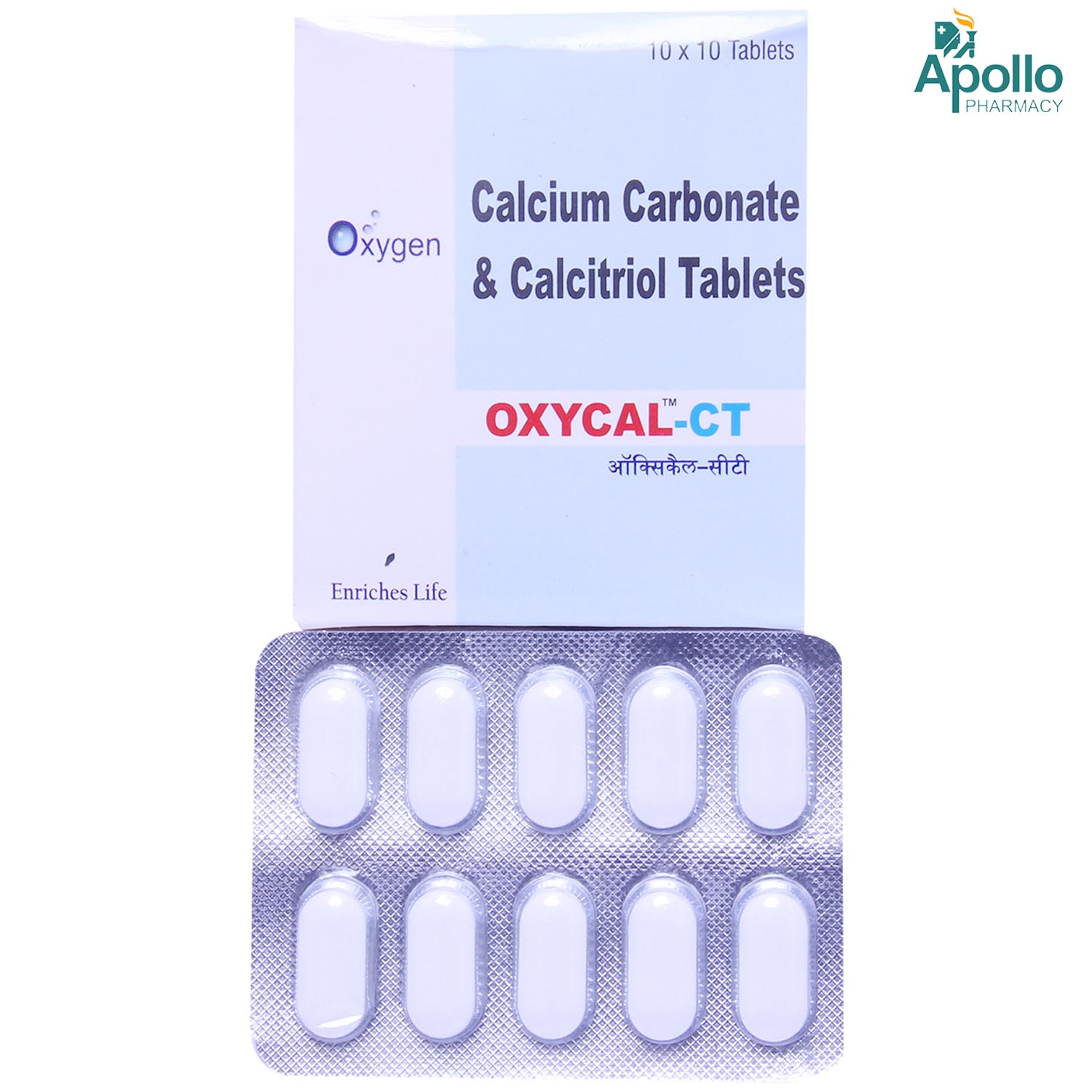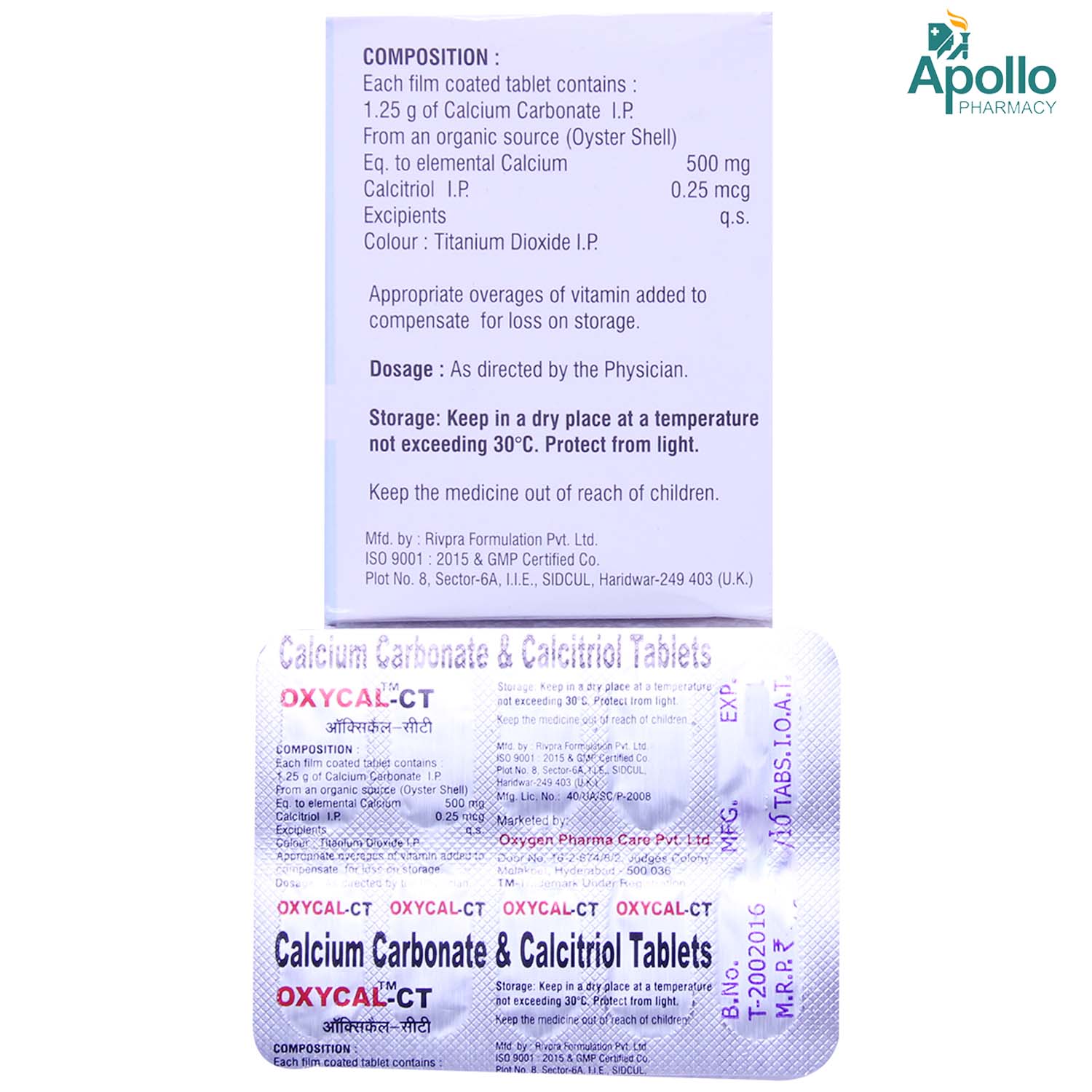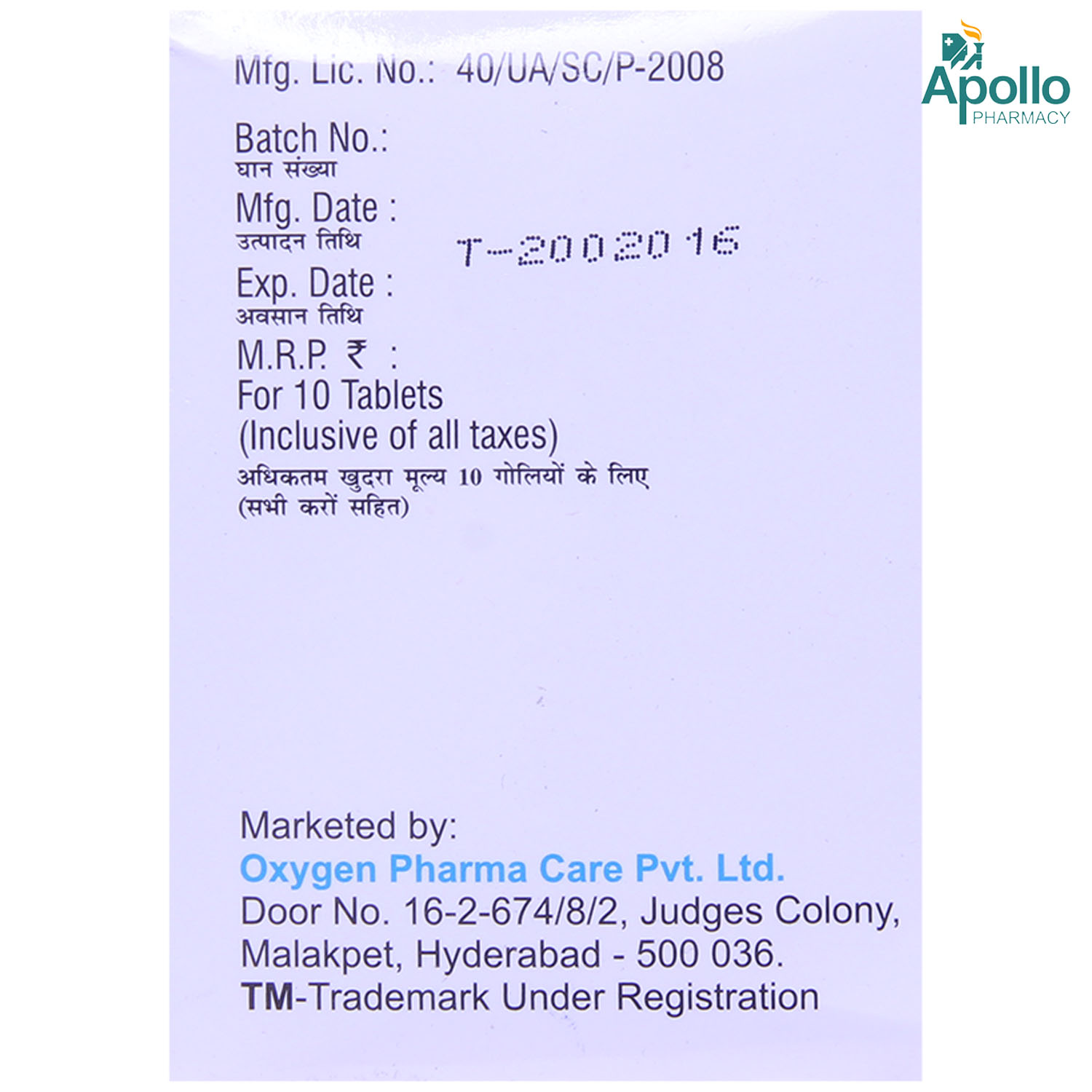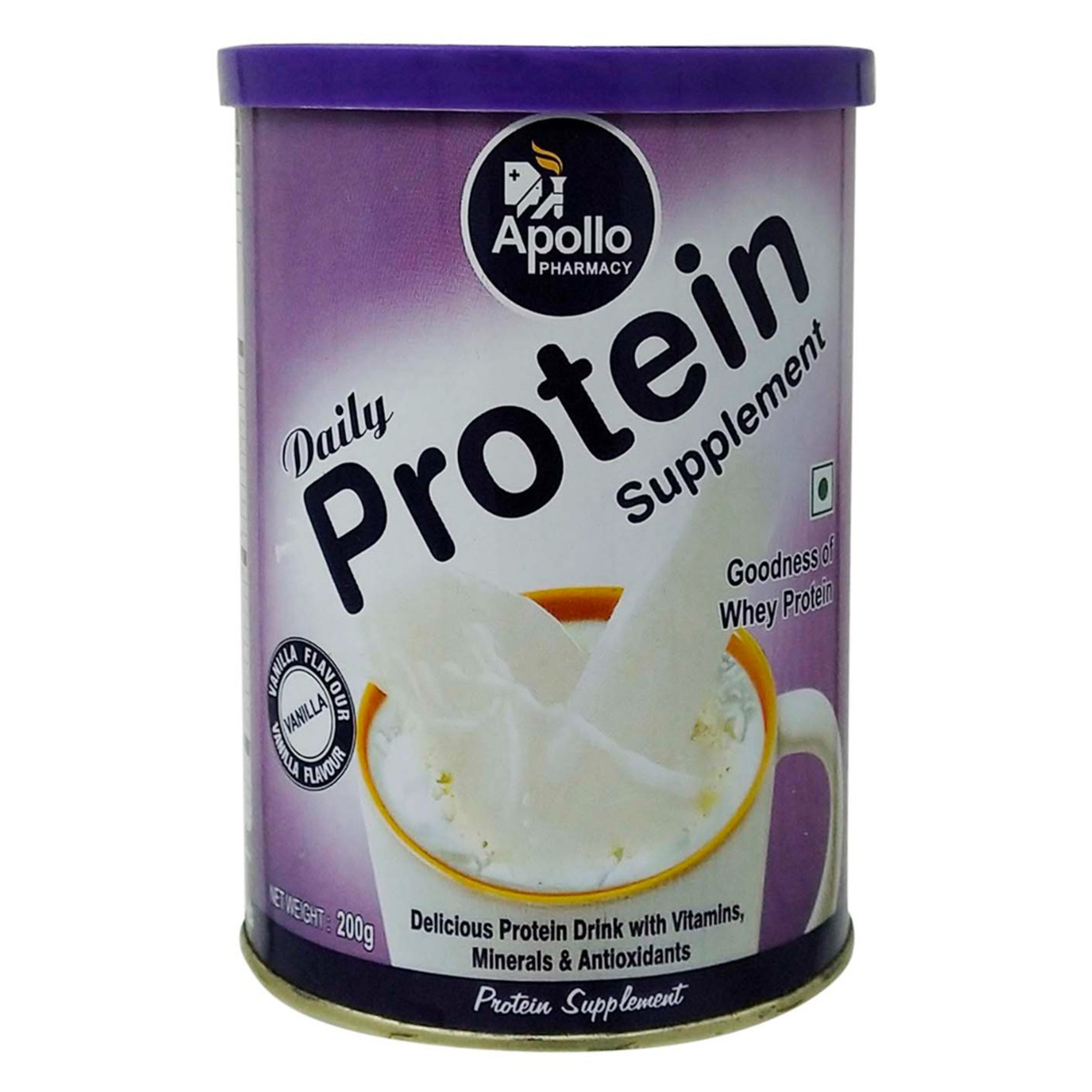Oxycal-CT Tablet
MRP ₹115
10 Tablet₹10.35 per unit(Inclusive of all Taxes)
₹17.3 Cashback (15%)



Available Offers
Therapeutic Class
Customers Also Bought
Author Details
We provide you with authentic, trustworthy and relevant information
Drug-Drug Interactions Checker List
- CHOLESTYRAMINE
- COLESEVELAM
- COLESTIPOL
- DOXYCYCLINE
- MINOCYCLINE
- CIPROFLOXACIN
- LEVOFLOXACIN
- PENICILLIN
- NEOMYCIN
- CHLORAMPHENICOL
- ESTRAMUSTINE
- ALENDRONATE SODIUM
- LEVOTHYROXINE
- ORLISTAT
- PHENOBARBITAL
- FUROSEMIDE
- ETHACRYNIC ACID
- DIGITOXIN
- PARAFFIN
Drug-Drug Interactions
Drug-Drug Interactions
Login/Sign Up
Co-administration of Cholecalciferol and Oxycal-CT Tablet are forms of vitamin D, and taking too much vitamin D may lead to toxic effects.
How to manage the interaction:
Although there is a possible interaction between colecalciferol and Oxycal-CT Tablet, you can take these medicines together if prescribed by your doctor. If you notice any of these symptoms - irregular heartbeat, seizures, weakness, tiredness, headache, dizziness, ringing in the ears, loss of appetite, feeling sick, dry mouth, strange taste in your mouth, muscle or bone pain, thirst, losing weight, eye infection, sensitivity to light, runny nose or itching - contact a doctor right away. Do not discontinue any medications without consulting a doctor.
Co-administration of Paricalcitol and Oxycal-CT Tablet are forms of vitamin D, and taking too much vitamin D may lead to toxic effects related to excessive calcium levels in the blood and urine.
How to manage the interaction:
Concomitant use of Paricalcitol with Oxycal-CT Tablet can lead to an interaction, it can be taken if advised by a doctor. Consult the prescriber if you experience symptoms of vitamin D intoxication such as weakness, fatigue, headache, vertigo, drowsiness, ringing in the ears, loss of appetite, nausea, vomiting, constipation, dry mouth, metallic taste, muscle pain, bone pain, muscle incoordination, and low muscle tone. Do not discontinue the medication without consulting a doctor.
Co-administration of Rifapentine with Oxycal-CT Tablet may decrease the effects of Oxycal-CT Tablet.
How to manage the interaction:
Although there is an interaction, Oxycal-CT Tablet can be taken with Rifapentine if prescribed by the doctor. The doctor may recommend dose adjustment or special tests to use both medicines safely. Do not discontinue the medication without consulting a doctor.
Co-administration of Amobarbital and Oxycal-CT Tablet may decrease the effects of Oxycal-CT Tablet.
How to manage the interaction:
Co-administration of Oxycal-CT Tablet with Amobarbital can possibly result in an interaction, but it can be taken if a doctor has advised it. If you notice any of these symptoms, it's important to contact a doctor right away. Do not stop using any medications without talking to a doctor.
Co-administration of Oxycal-CT Tablet with Carbamazepine may decrease the effects of Oxycal-CT Tablet.
How to manage the interaction:
Although there is an interaction, Oxycal-CT Tablet can be taken with Carbamazepine if prescribed by the doctor. However, if you experience any unusual symptoms contact your doctor immediately. Do not stop using any medications without first talking to your doctor.
Co-administration of Oxycal-CT Tablet with Digitoxin may increase the risk or severity of digitoxin toxicity and irregular heart rhythm.
How to manage the interaction:
Although there is an interaction, Oxycal-CT Tablet can be taken with Digitoxin if prescribed by the doctor. Consult the prescriber if you experience symptoms that could indicate high blood calcium, such as weakness, fatigue, headache, dizziness, drowsiness, ringing in the ears, loss of appetite, nausea, vomiting, constipation, dry mouth, a metallic taste in the mouth, bone or muscle pain, incoordination, frequent urination, and weight loss. Also, seek medical attention if you experience symptoms of digitoxin toxicity, such as blurred vision, slow pulse, or irregular heartbeats. Do not discontinue the medication without consulting a doctor.
Co-administration of Ergocalciferol and Oxycal-CT Tablet are forms of vitamin D, and taking too much vitamin D may lead to toxic effects related to increased calcium levels in the blood and urine.
How to manage the interaction:
Co-administration of Ergocalciferol with Oxycal-CT Tablet can lead to an interaction, it can be taken if advised by a doctor. Consult the prescriber if you experience symptoms of vitamin D intoxication such as weakness, fatigue, headache, vertigo, drowsiness, ringing in the ears, loss of appetite, nausea, vomiting, constipation, dry mouth, metallic taste, muscle pain, bone pain, muscle incoordination, and low muscle tone. Do not discontinue the medication without consulting a doctor.
Co-administration of Oxycal-CT Tablet with Dihydrotachysterol can increase the risk of adverse effects.
How to manage the interaction:
Co-administration of Dihydrotachysterol with Oxycal-CT Tablet can possibly result in an interaction, but it can be taken if your doctor has advised it. If you notice any of these symptoms - irregular heartbeat, seizures, weakness, tiredness, headache, dizziness, ringing in the ears, loss of appetite, feeling sick, throwing up, constipation, dry mouth, strange taste in your mouth, muscle or bone pain, trouble coordinating movements, weak muscles, peeing a lot, feeling very thirsty, losing weight, eye infection, sensitivity to light, itching, or a higher body temperature - make sure to call a doctor right away. Do not discontinue any medications without consulting a doctor.
Co-administration of Calcifediol and Oxycal-CT Tablet are forms of vitamin D, and taking too much vitamin D may lead to toxic effects related to increased calcium levels in the blood and urine.
How to manage the interaction:
Taking Calcifediol with Oxycal-CT Tablet can lead to an interaction, it can be taken if advised by a doctor. Consult the prescriber if you experience symptoms of vitamin D intoxication such as weakness, headache, fatigue, drowsiness, vertigo, ringing in the ears, loss of appetite, nausea, vomiting, constipation, dry mouth, metallic taste, muscle pain, bone pain, muscle incoordination, and low muscle tone. Do not discontinue the medication without consulting a doctor.
Co-administration of Doxercalciferol and Oxycal-CT Tablet are forms of vitamin D, and taking too much vitamin D may lead to toxic effects related to increased calcium levels in the blood and urine.
How to manage the interaction:
Taking Doxercalciferol with Oxycal-CT Tablet can lead to an interaction, it can be taken if advised by a doctor. Consult the prescriber if you experience symptoms of vitamin D intoxication such as weakness, fatigue, headache, vertigo, drowsiness, ringing in the ears, loss of appetite, nausea, vomiting, constipation, dry mouth, metallic taste, muscle pain, bone pain, muscle incoordination, and low muscle tone. Do not discontinue the medication without consulting a doctor.
Drug-Food Interactions
Drug-Food Interactions
Login/Sign Up
Drug-Diseases Interactions
Drug-Diseases Interactions
Login/Sign Up
Drug Warnings
If you are allergic to Oxycal-CT Tablet or any other medicines, please tell your doctor. If you are pregnant or planning to become pregnant, it is advised to inform your doctor before using Oxycal-CT Tablet . Consult your doctor if you are pregnant or breastfeeding. Oxycal-CT Tablet is not recommended if you have hypercalcemia (high calcium levels), metastatic calcification (extra deposits of calcium in the body), hypervitaminosis D (high vitamin D levels), and malabsorption syndrome (difficulty absorbing nutrition from food). Inform your doctor before taking Oxycal-CT Tablet if you have any heart/kidney/liver/blood vessel diseases, kidney stones, sarcoidosis (growth of inflammatory cells in different parts of the body), Crohn's disease (inflammatory bowel disease), Whipple's disease (bacterial infection affecting joints and digestive system), achlorhydria (little or no stomach acid), low levels of bile, and phosphate imbalance. Oxycal-CT Tablet may contain sugar or sorbitol; hence caution should be taken in case of intolerance to sugars, diabetes, and phenylketonuria (increased levels of an amino acid called phenylalanine).
Side Effects of Oxycal-CT Tablet
- Constipation
- Stomach upset
- Nausea/vomiting
- Bone/muscle pain
- Fast or pounding heartbeat
- Headache
Directions for Use
Medicinal Benefits Mweb
Medicinal Benefits
Oxycal-CT Tablet is used to treat low blood calcium levels. It effectively treats various conditions caused by low calcium levels in the body like vitamin D deficiency, osteoporosis, hypoparathyroidism, latent tetany, and rickets or osteomalacia. Oxycal-CT Tablet consists of two medicines: Calcium (mineral) and Calcitriol (Vitamin D). Calcium is a mineral that is used to prevent or treat a calcium deficiency. It provides essential nutrients to maintain bone formation. Calcitriol is a steroid hormone produced in the skin when exposed to ultraviolet light or obtained from food sources. It helps maintain blood calcium and phosphorus levels and mineralization of bone.
Uses of Oxycal-CT Tablet
About Oxycal-CT Tablet
Oxycal-CT Tablet belongs to the class of 'vitamins,' primarily used to treat various conditions caused by low calcium levels in the body like Vitamin D deficiency, osteoporosis (weak and brittle bones), hypoparathyroidism (a condition in which parathyroid glands make low levels of calcium in the body), latent tetany (a muscle disease with low blood calcium levels), and rickets or osteomalacia (softening or deforming of bones due to lack of calcium).
Oxycal-CT Tablet consists of calcium and calcitriol (vitamin D). Calcium is a mineral that is used to prevent or treat a calcium deficiency. It provides essential nutrients to maintain bone formation. Calcitriol is a synthetic form of vitamin D that helps maintain blood calcium and phosphorus levels and mineralization of bone.
Oxycal-CT Tablet is likely safe to use. In some cases, it may cause side effects like constipation and stomach upset. These side effects do not require medical attention and gradually resolve over time. However, if the side effects persist or worsen, please consult a doctor.
Let your doctor know if you are using any other medicine, or herbal products before starting Oxycal-CT Tablet . Please inform your doctor if you have hypercalcemia (high calcium levels), hypervitaminosis D (high vitamin D levels), malabsorption syndrome (difficulty absorbing nutrition from food), low levels of bile, and phosphate imbalance before starting Oxycal-CT Tablet . If you are pregnant or breastfeeding, consult your doctor before taking Oxycal-CT Tablet .
Online payment accepted
know your delivery time
Provide Delivery Location
Author Details
We provide you with authentic, trustworthy and relevant information
Therapeutic Class

Have a query?
Verified Buyers Reviews
Side Effects
Buy best Health & Nutrition products by
Others
AYUR
HIMALAYAN ORGANICS
WELLBEING NUTRITION
HEALTHVIT
APOLLO LIFE
HORLICKS
PURE NUTRITION
GNC
HAPPILO
KELLOGG S
APOLLO PHARMACY
ENSURE
Optimum Nutrition
SWISSE
Dabur
FAST&UP
ZANDU
MUSCLEBLAZE
Muscletech
SUGAR FREE
COMPLAN
KAPIVA
PROHANCE
QNT
Pediasure
THE VITAMIN COMPANY
VOGUE WELLNESS
CENTRUM
CUREVEDA
GLUCON-D
PROTINEX
BAIDYANATH
Millet Marvels
OZIVA
LION
ORIGIN
PENTASURE
RITEBITE
THE GOOD BUG
AYUSH KALP
RASAYANAM
MANNA
TRUE ELEMENTS
BOURNVITA
EQUAL
HIMALAYA
MY FITNESS
CALCIMAX
PATANJALI
SWADESHI
TONG GARDEN
BEAUTYWISE
ISOPURE
HEALTHYR-U
NESTLE RESOURCE
SAFFOLA
YOGABAR
B-PROTIN
BODYWELL
PINTOLA
Power Gummies
ULTRA D3
FITSPIRE
GALACT
GRD
INDIA HEMP ORGANICS
JIVA
NEUHERBS
NUTRASWISS
INJA
Performance Inspired
REVITAL
THREPTIN
Bolas
CELEVIDA
ENERZAL
ESSENTIAL
IN YOU
ORGANIC INDIA
PRO-PL
QUAKER
WEST COAST
BOOST
D-PROTIN
ENDURA MASS
ESPERER
FRESUBIN
GOFIGURE
HEALTHKART
OURDAILY
PROLYTE
SRI SRI TATTVA
VIVAMOM
Amocare
BAIDYANATH VANSAAR
BASIC AYURVEDA
BLACKMORES
BOLD CARE
ECOPROT
HAMDARD
HOLLAND & BARRETT
JEENI
KIDS-PRO
Nutriburst
ORS
RAWRX
RONNIE COLEMAN
SUPRADYN
ULTRA
VIDAVANCE
ACTIVE WOMEN
ALL GOOD
ARTH
BERTOLLI
CALIBAR
CHARAK
DIABLISS
DR. VAIDYA S
EVOCUS
FIGARO
GROVIVA
HEALTH OK
JOINTACE
LACTARE
MAXVIDA
NURTURE
ONE SCIENCE NUTRITION
POWERNOSH
PROTINULES
PULSE COPEWEL
PURE FOODS
QUANTO
RENO-PRO
REPL
SAARAL
SIDDHAYU
SLURRP FARM
SUPERYOU
WELLMAN
XTEND
ZINCOVIT
ADCUMIN
BIOVIT
CHIC NUTRIX
DHOOTAPAPESHWAR
ENRAIZ
FOLLIHAIR
GLUCOVITA
IMMUNACE
KABIPRO
KIDDOZE
LAMINO
LIVERIL
MEDISLIM
NEPRO
NUTRIX
OBICURE
PHAB
PREGNACARE
PROTOTAL
RELISH
RESHAPE
SIMMOM
V-NOURISH
WELLBABY
ZEFRICH
ACTIFIBER
ALBUMEN
APTAGROW
CADIHEP
CARCTOL
CHATURBHUJ
DIABETONE
DUREX
DYMATIZE
FEROGLOBIN
GREEN CALLS
JELLY VITA
LOWKAL
LUPIN
MAN MATTERS
MAXIRICH
MENOPRO
MILO
MULMIN
NUTRIRIGHT
NUTRISLIM
OPTIFAST
OSTOCALCIUM
OVARYL
PEPTAMEN
SEVENSEAS
SIMYL
STEADFAST
SUPER GUMMY
SWEET N HEALTHY
TEACHER S GRACE
ULTIMATE NUTRITION
VICKS
WELLWOMAN
WHIT-CARE
WOW
AAYUSH
AIMIL
ALEMBIC PHARMA
ANANTA HEMP WORKS
APPLIED NUTRITION
ARMR
BE BODYWISE
BECOZYM C
BINTHIN
BIOSLIM
BIOTIQUE
BONGRAFT
BUT-NANO
CALBLOOM
CAMIPRO-D
CAVENOR
CEEPLUS
COERINGA
COLRED
CURKEY
CUTE BELLY
D GERMS
DIAPRO
DR S NUTS & SEEDS
EASIFUD
ELECTRICAL
FEMOTONE
FORMALIN
FRANCH
GARLIC PEARLS
GARLICON
GLAZOVIT-PLUS
GLUCON-C
GREVIM ROYALE
GROACTIV
GROWVIT
HEPA PRO
HI LIFE
HIGH PRO
HUNGARZ
IMUNBITES
IN2
ITWORKS
JINGA GOLD
LACTIM
LACTOGROW
MACPROT
MENOPACE
MENOREG
MICROMOM
MILLENNIUM HERBALS CARE
MYOCYST
NATURE S VELVET
NEOGAIN
NESPLUS
NEUROZAN
NUSOWIN
NUTRIGAIN
NUTRIWALA
Nestle
Nourishel
OSTEOCARE
PEDIA GOLD
PERFECTIL
PROHEP
PROLAGE-PLUS
PROLINA OG
PROMOLACT
PRONIDA
PROSURE
PROTEX-DF
PROTI YUM
PULMOCARE
PULSE CANWEL
REJUHAIR
RETOGAR
ROSIFLEX
RUCHI
Raja Rani
SACCHARIN
SALIAC
SEACOD
SILVERSPOON
SLIMTONE
SLIMTONE-D
SLINGEN
STIMULAC
STIMULIV
SUGARLITE
SWEET N ZERO
Sen Maxx
TUNZIA
TUSKCA
TY.PHOO
VIDASLIM
VIRILEX
VISION GUARD
Vlado Sky Enterprise Pvt Ltd
Abbott India Ltd
Sun Pharmaceutical Industries Ltd
Apollo Healthco Limited
Zydus Healthcare Ltd
Macleods Pharmaceuticals Ltd
West Coast Pharmaceuticals Pvt Ltd
Intas Pharmaceuticals Ltd
Mankind Pharma Pvt Ltd
Meyer Organics Pvt Ltd
Emcure Pharmaceuticals Ltd
Lupin Ltd
Alkem Laboratories Ltd
Nutritionalab Pvt Ltd
Eris Life Sciences Ltd
Akumentis Healthcare Ltd
British Biologicals
La Renon Healthcare Pvt Ltd
Cipla Ltd
Micro Labs Ltd
Zuventus Healthcare Ltd
Torrent Pharmaceuticals Ltd
Pharmed Ltd
Dr Reddy's Laboratories Ltd
Modi Mundipharma Pvt Ltd
Corona Remedies Pvt Ltd
Hindustan Unilever Ltd
Indchemie Health Specialities Pvt Ltd
Apex Laboratories Pvt Ltd
Koye Pharmaceuticals Pvt Ltd
Leeford Healthcare Ltd
Bioceutics Inc
East West Pharma India Pvt Ltd
Alniche Life Sciences Pvt Ltd
FDC Ltd
Alembic Pharmaceuticals Ltd
Aristo Pharmaceuticals Pvt Ltd
DR Johns Lab Pharma Pvt Ltd
Herbs Nutriproducts Pvt Ltd
Guardian Healthcare Services Pvt Ltd
Vasu Organics Pvt Ltd
Pulse Pharmaceuticals
Fourrts India Laboratories Pvt Ltd
TTK Healthcare Ltd
Raptakos Brett & Co Ltd
USV Pvt Ltd
Glanbia Performance Nutrition India Pvt Ltd
Morepen Laboratories Ltd
Innovcare Life Sciences Pvt Ltd
Linux Laboratories Pvt Ltd
Troikaa Pharmaceuticals Ltd
Cadila Pharmaceuticals Ltd
Bright Lifecare Pvt Ltd
Wockhardt Ltd
Sanofi India Ltd
Primus Remedies Pvt Ltd
Zydus Cadila
Kellogg India Pvt Ltd
Tablets India Ltd
Indoco Remedies Ltd
Medley Pharmaceuticals Ltd
Overseas Health Care Pvt Ltd
Procter & Gamble Health Ltd
Shri Balaji Overseas
Dabur India Ltd
Ordain Health Care Global Pvt Ltd
Systopic Laboratories Pvt Ltd
Ajanta Pharma Ltd
Daris Biocare
Health & Happiness (H&H) Trading India Pvt Ltd
Hexagon Nutrition Pvt Ltd
Nutricia International Pvt Ltd
Zee Laboratories Ltd
Aareen Healthcare Pvt Ltd
Aeronutrix Sports Products Pvt Ltd
Emami Ltd
Radicool Pharmaceuticals Pvt Ltd
Wanbury Ltd
Biovitamins Pvt Ltd
Cadila Healthcare Ltd
Esmatrix Life Sciences Pvt Ltd
Ipca Laboratories Ltd
Klm Laboratories Pvt Ltd
Lloyd Healthcare Pvt Ltd
Sain Medicaments Pvt Ltd
Septalyst Lifesciences Pvt Ltd
Tas Med India Pvt Ltd
Wallace Pharmaceuticals Pvt Ltd
Biorex Healthcare Pvt Ltd
Elbrit Life Sciences Pvt Ltd
Levin Life Sciences Pvt Ltd
Panacea Biotec Ltd
Adret Retail Pvt Ltd
Cipla Health Ltd
Delcure Life Sciences Ltd
Femura Pharmaceuticals Pvt Ltd
Gladstone Pharma India Pvt Ltd
GlaxoSmithKline Consumer Healthcare Ltd
Kepler Healthcare Pvt Ltd
Ronyd Healthcare Pvt Ltd
Shield Healthcare
Sportech Solutions
Sundyota Numandis Pharmaceuticals Pvt Ltd
Akesiss Pharma Pvt Ltd
Glenmark Pharmaceuticals Ltd
Icarus Health Care Pvt Ltd
Lincoln Pharmaceuticals Ltd
Maxamus Pharma Pvt Ltd
Nestle India Ltd
Novelty Healthshine Pvt Ltd
Akcent Healthcare India Pvt Ltd
Climic Health Pvt Ltd
Franco Indian Pharmaceuticals Pvt Ltd
Hbc Life Sciences Pvt Ltd
Med Manor Organics Pvt Ltd
Ozone Pharmaceuticals Ltd
Sanatra Healthcare Ltd
Vogue Pharmaceuticals Pvt Ltd
Avis Lifecare Pvt Ltd
Bion Therapeutics (I) Pvt Ltd
Comed Chemicals Ltd
Elder Pharmaceuticals Ltd
Entod Pharmaceuticals Ltd
Fast Foods-Food As Therapy
Gh Vision Care Life Sciences
Hs Aldem Healthcare
Lyceum Life Sciences Pvt Ltd
MMC Healthcare Ltd
Mothersoul Pvt Ltd
Mova Pharmaceutical Pvt Ltd
Pfizer Ltd
Qnt Sport India Pvt Ltd
Shree Baidyanath Ayurved Bhawan Pvt Ltd
Triton Healthcare Pvt Ltd
Zywie Ventures Pvt Ltd
Adonis Laboratories Pvt Ltd
Goddres Pharmaceuticals Pvt Ltd
Happilo International Pvt Ltd
Icon Life Sciences
Naturell India Pvt Ltd
Nouveau Medicament Pvt Ltd
Origin Nutrition Pvt Ltd
Seven Turns Private Limited
Signova Pharma
Starus Pharmaceuticals
Steadfast MediShield Pvt Ltd
Strides Shasun Ltd
Unison Pharmaceuticals Pvt Ltd
Winmark Healthcare Pvt Ltd
AD ENTERPRISES
Alteus Biogenics Pvt Ltd
Edura Pharmaceuticals Pvt Ltd
Foregen Healthcare Ltd
Lion Dates Impex (P) Ltd
Mediart Life Sciences Pvt Ltd
Rasayanam Enterprises
Uth Healthcare Pvt Ltd
Zelleven Healthcare Pvt Ltd
Biological E Ltd
Cachet Pharmaceuticals Pvt Ltd
Era Pharmaceuticals Pvt Ltd
Fine Formulations
Fresenius Kabi India Pvt Ltd
Galaxus Pharmaceuticals
Hetero Healthcare Pvt Ltd
Medicure Life Sciences Pvt Ltd
Medishri Healthcare Pvt Ltd
Mrl Pharma Opc Pvt Ltd
Nutraferon Pvt Ltd
Olamic Pharma Pvt Ltd
Qurewell Health Science Pvt Ltd
RPG Life Sciences Ltd
Southern Health Foods Pvt Ltd
Stedman Pharmaceuticals Pvt Ltd
The Himalaya Drug Company
Votary Laboratories (India) Ltd
Zerico Lifesciences Pvt Ltd
An Pharmaceuticals Pvt Ltd
Blisson Mediplus Pvt Ltd
Butson Biosciences
Jenburkt Pharmaceuticals Ltd
Jupiter Life Sciences Pvt Ltd
Mascot Health Series Pvt Ltd
Medsea Healthcare Pvt Ltd
Mondelez India Foods Pvt Ltd
Oaknet Healthcare Pvt Ltd
Osren Healthcare Pvt Ltd
Pharmanova Specialties Pvt Ltd
Seagull Pharmaceutical Pvt Ltd
Senechio Pharma Pvt Ltd
Serum Institute Of India Pvt Ltd
Spa Newtraceuticals Pvt Ltd
Uniwell Medicare Pvt Ltd
Whole Earth Brands Private Limited
Affluential Pharmaceuticals Pvt Ltd
Albert David Ltd
Alka Pharmaceuticals
Anthem Bio Pharma
Centaur Pharmaceuticals Pvt Ltd
Converge Biotech Pvt Ltd
Ethinext Pharma
Instaray Pharmaceuticals
Kinesis Pharmaceuticals Pvt Ltd
Maxis Healthcare (I) Pvt Ltd
Medilab India
Medrexcare Pharma Pvt Ltd
Neomedix Healthcare India Pvt Ltd
Newtrimed Healthcare Pvt Ltd
Oriva Life Sciences Pvt Ltd
Pristine Pearl Pharma Pvt Ltd
Sinsan Pharmaceuticals Pvt Ltd
Vix Pharma International
Biokindle Lifesciences Pvt Ltd
Calren Care Lifesciences Pvt Ltd
Celagenex Research (india) Pvt Ltd
Dukes Lab
GlaxoSmithKline Pharmaceuticals Ltd
Grandcure Healthcare Pvt Ltd
HW WELLNESS SOLUTIONS PVT LTD
Hind Bioscience
Incite Pharmaceuticals
Juggat Pharma Ltd
Kosher Organics Pvt Ltd
Kuresys Labs Pvt Ltd
Maxford Labs Pvt Ltd
Nexgen Rx Life Science Pvt Ltd
Novartis India Ltd
Nutrigold India Pvt Ltd
Patanjali Ayurved Limited
Samarth Life Sciences Pvt Ltd
Shreya Life Sciences Pvt Ltd
Stanley Healthcare Pvt Ltd
Stanwell Lifesciences Pvt Ltd
Syndicate Life Sciences Pvt Ltd
Truhealthy Llp
Zenska Life Sciences Pvt Ltd
Adroit Biomed Ltd
Anglo French Drugs & Industries Ltd
Apellon Biotech
Azzurra Pharmaconutrition Pvt Ltd
Bayer Pharmaceuticals Pvt Ltd
Biozenesis Healthcare
British Life Sciences Pvt Ltd
Charak Pharma Pvt Ltd
Elinor Pharmaceuticals (P) Ltd
Gates India Pvt Ltd
Healthon Pharmaceuticals Pvt Ltd
Inolife Healthcare
Intra Labs India Pvt Ltd
J B Chemicals & Pharmaceuticals Ltd
Jagsonpal Pharmaceuticals Ltd
Jubilant Lifesciences Ltd
Malook Pharmaceuticals Pvt Ltd
Marico Ltd
Medilead Pharmaceuticals
Medopharm Pvt Ltd
Medsol India Overseas Pvt Ltd
Montana Remedies Pvt Ltd
Nutragenix Healthcare Pvt Ltd
Oxirich Healthcare Pvt Ltd
Parnasa Mediworld Pvt Ltd
Premier Nutraceuticals Pvt Ltd
Rene Lifescience
Resolute Healthcare
SATVIKK INTERNATIONAL
Scorleon Pharma
Shankus Acme Pharma Pvt Ltd
Sunways (India) Pvt Ltd
TONG GARDEN FOOD PRODUCTS INDIA PVT.LTD.
Vintage Labs
Waterley Pharmaceuticals Pvt Ltd
Aar Ess Remedies Pvt Ltd
Aesthetic Nutrition Pvt Ltd
Alvio Pharmaceuticals Pvt Ltd
Astrum Healthcare Pvt Ltd
Axenic Healthcare
Azveston Healthcare Pvt Ltd
BSA Pharma Inc
Brio Bliss Life Science Pvt Ltd
Canixa Life Sciences Pvt Ltd
Das Foodtech Private Limited
Desons Therapeutics Pvt Ltd
Dhamus Pharma
Dwd Pharmaceuticals Ltd
East India Pharmaceutical Works Ltd
Edence Life Sciences Pvt Ltd
Evexia Healthcare Pvt Ltd
Fusion Health Care Pvt Ltd
Hegde & Hegde Pharmaceutica Llp
Iriska Pharmaceuticals Pvt Ltd
Jiva Ayurvedic Pharmacy Ltd
Kathkin Lifesciences Pvt Ltd
Maverick Pharma Pvt Ltd
Medgen Drugs And Laboratories Pvt Ltd
Mirasure Life Sciences Pvt Ltd
Myol Pharmaceuticals
Nucgnex Lifesciences Pvt Ltd
Nuorik Healthcare
Olympus Therapeutics Pvt Ltd
Owshadh Pharmaceuticals
SPECIALITY SUPPLEMENT
CALCIUM
IRON
VITAMIN D
COLLAGEN
VITAMIN B12
VITAMIN C
FISH OIL OMEGA
VITAMIN B
MULTIVITAMIN
Adult Nutrition Drink
ZINC
SEXUAL HEALTH SUPPLEMENT
WHEY PROTEIN
Kids Nutrition Drink
VITAMIN B9
ENERGY DRINK
SPECIALITY NUTRITION DRINK
DRY FRUIT
HERBAL JUICE
VITAMIN E
Prebiotic & Probiotic
ORS
SUGAR SUBSTITUTE
WOMEN & MOTHER NUTRITION DRINK
Chyawanprash
MAGNESIUM
Protein Bar
BREAKFAST CEREAL
Protein Powder
BIOTIN
DIABETIC NUTRITION DRINK
Honey
WEIGHT LOSS
Fat Burner
PLANT PROTEIN POWDER
VITAMIN B1
Apple Cider Vinegar
MELATONIN
APPETITE STIMULANT
Meal Replacement
Peanut Butter
AMINO ACID
Flax seed Oil
INFUSION TEA
NUT & SEED
Ashwagandha
Instant Food
OATS
Olive Oil
Mass Gainer
Pre Workout
CURCUMIN
POTASSIUM
VITAMIN A
DISKETTE
L-Carnitine
Cod Liver Oil
CREATINE
MILLETS & CEREALS
VITAMIN B6
ARGININE
COENZYME Q10
Shilajit
Appetite Suppressant
Chromium
MILK THISTLE
Glutathione
VITAMIN B2
VITAMIN K
L-Glutamine
MORINGA
GARCINIA CAMBOGIA
GREEN TEA
SPIRULINA
ALPHA-LIPOIC ACID
GLUCOSAMINE
GOKSHURA
BCAA Protein Powder
GILOY
NEEM
SAFFRON
SELENIUM
TRIPHALA
Tulsi
VITAMIN B3
VITAMIN B5
Brahmi
CANDIES
FRUIT JUICE
Face Gel
Specialty Supplements
WEIGHT GAINER
WHEAT GRASS POWDER









